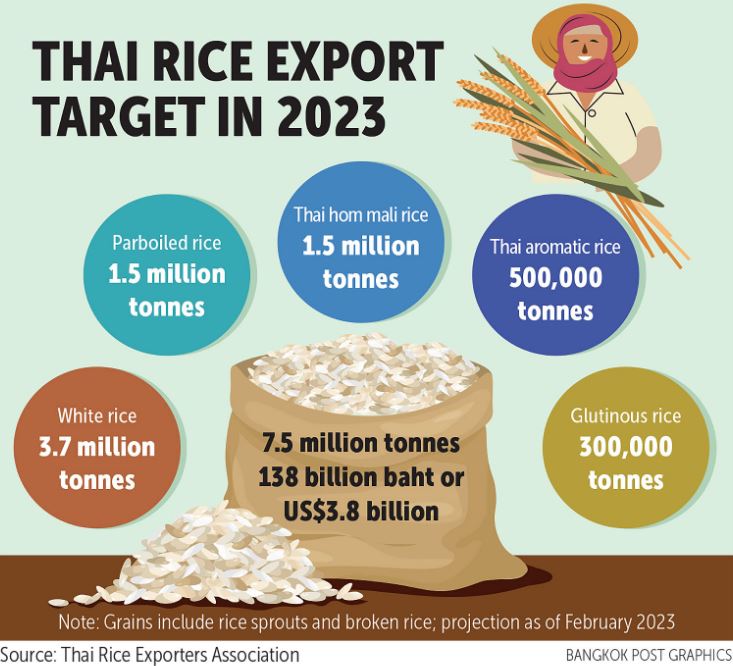Thailand: Rice exporters oppose populist policies
Rice exporters have voiced concerns about prospects, suggesting the entire rice market is likely to tumble if the next government reinstates populist rice policies that distort the market.
Charoen Laothamatas, president of the Thai Rice Exporters Association, said political factors are likely to affect the rice export outlook if the next ruling coalition reinstates populist policies such as the rice-pledging scheme, which set pledged prices higher than the market price, distorting typical market cycles.
The pledging scheme caused most of the rice supply to be controlled by the government, meaning private shippers could not purchase rice for export.
“Rice policy is often used as a political tool, exploited by parties. These policies distort the rice market over time,” he said.
Mr Charoen said the income guarantee scheme adopted by the current administration is acceptable as it pays farmers the difference between guaranteed rice prices and benchmark prices that change every two weeks, in line with market prices.
However, he said government spending on the income guarantee programme for rice farmers — worth an average of 100 billion baht a year — has increased every year.
A more worthwhile option for exporters, farmers and consumers in the long term would be to use such spending to upgrade rice varieties, develop fertiliser production facilities and expand the irrigation system, said Mr Charoen.
He also called on the government to help rein in the baht’s volatility, noting frenetic foreign exchange swings adversely affect rice trading as exporters normally sell rice on credit for up to three months.
The government and the Bank of Thailand should be more serious about handling capital inflow and outflow, said Mr Charoen, while an appropriate baht rate for exports is 34-35 to the US dollar.
In terms of rice export prospects, he said shipments are expected to remain in good shape this year thanks to a prediction of sufficient rainfall and stored water at dams.
Thailand set a rice export target for this year of 7.5 million tonnes, slightly lower than the 7.69 million tonnes exported in 2022, with export value estimated at $3.8 billion.
Last year, Thailand ranked as the world’s second-largest rice exporter after India, which shipped 21.9 million tonnes.
Vietnam placed third, with rice exports of 7.10 million tonnes.
Iraq was the largest importer of Thai rice, buying 1.6 million tonnes last year, up 458% from a year before. South Africa came second, importing 775,000 tonnes (down 2.3%).
China was in third place at 751,766 tonnes (up 18.8%), followed by the US at 651,596 tonnes (up 13.2%) and Benin at 322,338 tonnes (down 15.4%).
Source: https://www.bangkokpost.com/business/2507559/rice-exporters-oppose-populist-policies


 English
English




